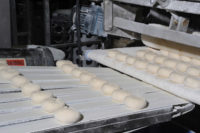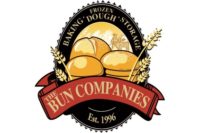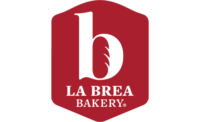Celebrating 31 years in business, Masada Bakery, Norcross, Ga., strives for perfection. Named after the mountain fortress on the enormous isolated rock near the Dead Sea (the word masada means fortress) used by surviving Zealots to hold off Roman troops, family-owned Masada
Bakery upholds the standards and beliefs of its
forefathers. “We use only the best ingredients and produce the highest quality we can, even it if takes more time or effort,” says founder and sales vice president Hezi Stein.
Customers can be assured that the bakery won’t give in to easy, commercialized ways to bake bread. “It’s simply not in our blood,” states the company’s website. “We remain true to our heritage, much in the same way as the Zealots of Masada.”
In its Norcross facility for about seven years, Masada Bakery has an outstanding reputation as a business partner, catering to some of the biggest and most well-known facilities in the South. Many customers rely on the bakery to “serve as their personal baking consultant,” according to Masada. Currently about 100,000 sq. ft. in size, with several additions, the location delivers to a large service area, which comprises Georgia, Florida, North Carolina, South Carolina, Tennessee, Alabama and Virginia.
Customers include upscale hotels, restaurants, supermarkets, schools and hospitals. One of Masada’s customers is Five Guys Burgers and Fries, which exploded onto the restaurant chain scene only a few years ago and is now one of the country’s fastest-growing chains. Five Guys has doubled the number of its outlets since 2009, so has enlarged Masada’s business so much that it sometimes seems the bakery can’t produce the hamburger its hamburger buns fast enough. It is for these “growing pains,” and for its scrumptious quality breads, rolls, pastries, buns, French rolls and bread, sourdough breads, muffins, stuffed and plain croissants, bear claws, bagels, Ciabattas and more, that Snack Food & Wholesale Bakery named Masada its 2012 Wholesale Bakery of the Year.
“We’ve worked very hard on this bakery and are very proud of where we’ve come,” says Neal Ullman, vice president of operations. “We’re thrilled with this award because we’ve put our heart and soul into the operation.”
Ullman comes from a long line of bakers. “My grandfather and father were in the business for years, so I’m the third generation in my family who is involved in baking. I was 15 when I started working at a bakery and never looked back. I knew that was what I was going to do and didn’t pursue anything else.”
The abundant variety of breads and other products are baked fresh daily and sold under the bakery’s own Masada Bakery label. It also markets a line of dinner rolls under the Perpentes label and bakes for private-label bakeries and convenience-store chains. Its trucks and trailers leave the facility every day, and customers also purchase its products at its distribution centers. It also sells to supermarkets such as Earth Fare, Rainbow, Kroger, Publix and Whole Foods. The products include artisan and sandwich breads, bagels, dinner rolls, hamburger and hot dog buns, pastries,
Ciabattas and special-order products.
Mix of fresh and frozen
All told, the company features about 280 stock-keeping units. Masada bakes 80% of its products for fresh delivery and 20% are frozen for delivery. It also offers frozen proof-and-bake, par-baked and thaw-and-sell items. “Everything we offer fresh we can offer frozen,” Ullman states. “We bake here and truck things as far as the Florida Keys by the next day. We have a freezer here but also bring most of our products to be frozen to a commercial freezer company that blast-freezes everything. Our vendors pick up our product at that location on a weekly or semi-weekly basis.”
Masada’s origins date back to the early 1980s, Hezi Stein, a restauranteur at the time, wanted to provide the best experience he could for his diners, but he couldn’t always find the same type of Old World breads he came to know in Israel. He decided to try his hand at baking, and soon opened his own bakery next to the restaurant. It wasn’t long before the word got out and sales grew.
By 1991, Stein’s bakery had taken on a life of its own. Five locations later, the bakery has had a lot of growing pains and is experiencing more. “We improved and got larger, and in 2005, we moved here, figuring this was the ultimate,” says Masada president and Hezi Stein’s brother, Koby Stein. “But we’re outgrowing this location now.”
Masada’s bakers are trained in artesian-style craftsmanship and use ingredients bought locally. The flour is milled in central Georgia so that it can be delivered fresh each day. Raw ingredients such as whole wheat, honey, yeast and milk solids are free of chemicals and preservatives. The products are created with 100% whole grain, so they are full of nutrition and fiber.
“We service restaurants, hospitals, hotels, race tracks, supermarkets, foodservice distributors and institutions,” Ullman points out. “When the bakery first started up, our biggest customers were supermarkets, but we expanded to include quite a bit more foodservice customers. We make a lot of hot dog buns for stadiums here, Tennessee and North Carolina. We also have a lot of hospital business because they want to bring upscale products to their patients.”
Growing pains
Growing and expanding during a difficult economy is relatively unusual, but Masada has been growing for several years and continues to do so. Production has been enhanced with several equipment upgrades over the past four years, including new tunnel ovens, spiral cooling conveyors and other transport systems and additional bagging and packaging machinery. “We added a lot of new equipment mainly to accommodate the growth we’ve experienced with the Five Guys hamburger and hot dog bun business,” he adds. “We already had a lot of automation, but when we began working with Five Guys, we knew we had to add more production lines. At first, Five Guys only gave us orders for two stores. Now, we serve customers fresh daily from Virginia to Key West, Florida.”
Koby Stein agrees: “Five Guys is adding more and more burger restaurants all the time. We were with them right from the very start when they only had a handful of locations. And they did everything they said they would.”
Five Guys is experiencing enormous success, and more orders from more of its burger restaurants have been coming Masada’s way. This put quite a bit more demand on the bakery. Consequently, Masada began to gear up further to handle the demand, which was difficult at first, Koby Stein admits. “When we started working with them, we already distributed our products in seven states,” he says. “They really filled up the gaps. As more business came, we acquired more and more equipment for more production lines. Since we moved into the [Norcross] building, we have invested nearly $10 million into the operation, with new equipment and additional space to accommodate the growth.”
The Five Guys business also prompted the Steins to add 10,000 sq. ft. to the back of the facility and uses a 29,000-sq.-ft. distribution center (DC) facility down the street to more effectively pack and ship the additional product. Tractor trailers tackle the long-distance deliveries, while city vans handle the more local deliveries.
“About a year ago, we added a pick-to-light system at the DC, automated the packing processes and added trucks and drivers, which gave us a bit more room here,” Ullman remembers. “Originally, the plant operated with nine rack ovens, but we recently installed two long tunnel ovens to handle the burger buns—adding one oven at a time—so now, we have two additional production lines including wrapping, packaging and tray-packing, for a total of six lines.”
Soon, Masada expects to open a second production facility in central Florida to better accommodate what currently are 25 routes in that state alone, with a total of nearly 70 routes. The company has 28 routes in Georgia, eight in the Carolinas, three in Virginia, one in Memphis and four in Alabama. Eight tractor trailers drop off the product at depots. “When we started out, we shipped product to Florida using one truck,” Ullman says. “Today, we have four tractor trailers driving there every day, six days a week. We cover the whole state of Florida. It’s a great market for us and is still expanding. We hope to have a new plant there next year that will produce everything we produce here.”
The trends
Ullman says the bakery constantly evaluates industry trends and upgrades its products and the bakery accordingly to meet customer needs. Centrally located in the Atlanta area, the bakery operation runs almost 24/7. “We ship our products fresh throughout a seven-state area in the South,” he says. “We have a team of experienced, committed bakers. To them, this is an art.”
When it comes to consumer likes and dislikes, Masada notices a lot of change right now. “Our top sellers include whole-grain breads, Jewish rye and a very good upgraded white bread, which is a big item,” Ullman points out. “We’re one of the few bakeries in this region that makes bagels. We make them fresh daily from scratch and don’t boil them. We make about nine different varieties of bagels and in the bread line, we make any kind of bread feasible, from rolls, white and wheat to French, sourdough, ryes, pumpernickels, rolls, deli rounds, round-topped.”
The newest Masada products are upscale pastries added in November 2011. “We introduced new breads and rolls along the way but we now offer 14 different pastry items for restaurants, race tracks, golf courses, hotels and other foodservice venues,” Ullman reports, adding that bagels don’t seem to be as popular as they once were. “All of the mom-and-pop groceries and delis are disappearing. The big cities are changing.”
Adds Koby Stein, “Breads are also changing in Europe. Breads used to be baked both in the morning and in the afternoon and no one wanted sliced bread because it would go stale quicker. But that’s not the case now.”
Organic products seemed to become quite popular a few years ago, but rising costs changed that. “We thought organic was going to be the next big thing, but in 2008, there was a major increase in the cost of organic flour,” Ullman remembers. “After that, we couldn’t make or sell organic breads at an affordable price.”
What’s more, Ullman says the proliferation of gluten-free baked goods is a big factor in the bakery business. “Gluten-free baked goods are very successful right now, but we know we can’t be all things to everyone. We can’t yet accommodate gluten-free because we believe that if you go too far left or right, you have no depth. The gluten-free bakeries do things well, but what we do we do very well. We’ve been here 32 years and have seen a lot of bakeries come and go and are growing in very tough times.”
Smooth road economically?
With that in mind, does Masada feel the pinch of this tough economy? Not as much as other bakeries, Ullman says. “We’re not feeling that we’ve been hit as hard as some,” he explains. “That has partly to do with luck and who we know, our customer relationships and the new relationships we’ve developed. All of that has helped us grow when everyone else is cutting back. We’re also very customer service-oriented. That’s everything, though it’s a challenge to please everyone when we have so many more [customers] than we used to. But keeping the customer happy is one of our core values. And we also think that this bakery is a labor of love.”
When it comes to food safety, Masada takes the extra precautions to check raw materials coming in and finished products going out. There are also Hazard Analysis Critical Control Points (HACCP) and metal detectors on every line and a certification from Steritech Corp. [Charlotte, N.C.] for food safety. “We keep the few allergens we use—milk, eggs, wheat and soy segregated from the main storage facility,” Ullman says. “We adhere to all of the state and federal regulatory programs, and conduct product and allergen checks and swabs. We haven’t really been affected by the changes made to the food safety regulations because we have always adhered to strict procedures. And we send our product out for inspection every month, per Georgia regulations, to a private lab for testing. We have a safety manager who guides both driver and plant safety, so our safety levels have really improved.”
In addition to its customer and safety initiatives, Masada has implemented a recycling program. Unbaked as well as baked product deemed unacceptable is repurposed as animal feed. All plastics, paper and paperboard are recycled and energy-efficient lighting replaced outdated lights about eight months ago. “We also have some motion-detection lighting, so expect these to pay for themselves in a few years,” says Koby Stein.
“We’re hoping to implement a more comprehensive environmental program, but with all of this growth, it’s been difficult to find the time,” Ullman admits. “We also had clean labels before the term was known. We don’t use preservatives. When we came out with clean-label bread in this area, we were the first to do so. It took off and now, everybody’s making it.”
Being very flexible is also a trait that customers enjoy. “We have to be flexible,” Ullman concludes. “We’ve been growing in the midst of a very difficult economy,” adds Koby Stein. “We grew 15% this year over last year. So we have to be on our toes. You never know what’s coming. But we’re very proud that we built a bakery with such a good product and good customers here in the Southeast. We turned a small shop into a considerable wholesale operation.”
Whatever is coming, or whatever consumers are looking for, Masada will provide it to them, with all of the passion and ability to continue to position itself on the top of the mountain.







